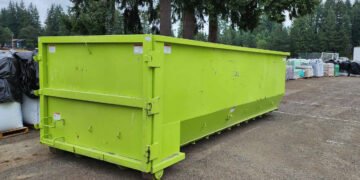Quality air conditioning has become a necessity in residential homes. During the hot summer months, your air conditioner can help you and your family stay safe and healthy inside your home. According to the Centers for Disease Control and Prevention (CDC), running your air conditioner is one way you can reduce your risk of heat-related illnesses like heat exhaustion and heatstroke.
Make sure your AC stays in top condition throughout the hot season. Follow these 5 easy yet effective maintenance tips for optimal system performance:
Clear obstructions around the unit
Proper and smooth airflow is important for efficient air conditioning. If the space around your AC unit is too crowded, it will restrict airflow to and from the system. Household items like paint cans, paper boxes, and other containers that are stored near or around air conditioner systems can also pose a risk of fire. Industry experts highly recommend providing at least 1 foot of clearance on all sides of the unit to allow your AC to operate properly.
Replace your AC air filter
Unchecked air filters are usually the cause of AC efficiency issues. Dust and dirt can accumulate on your filters over time, lowering the cooling performance of your AC. According to the United States Department of Energy, replacing your dirty air filters with clean ones will ensure the efficiency of your AC and lower the system’s energy consumption by up to 5 percent to 15 percent.
Adjust your thermostat
Using your thermostat wisely will let you enjoy optimal cooling in your home without the high energy bill. The DOE says you can save as much as 10% a year on air conditioning by setting your thermostat back 7° to 10°F for 8 hours a day from its normal setting. To save you from the hassle of manually adjusting your thermostat every time you arrive and leave home, you should invest in a smart thermostat. Smart thermostats allow you to control your HVAC system even when you are not at home.
Keep your curtains down during the heat of the day.
Your windows are one of the most common sources of heat gain in your home. According to the DOE, heat gain through your windows is responsible for 25 percent to 31 percent of residential cooling energy use. To help reduce the load on your air conditioner, block heat from entering your home, using window curtains and blinds.
Fix any air leaks around your home.
One important factor that affects the efficiency of your air conditioner is the condition of your home. If there are air leaks around your doors, windows, walls, and ceilings, your air conditioner will have a hard time cooling your home. This will force the system to consume more energy than it normally needs to operate.
Are you having problems with your home air conditioning?
If your air conditioner is not cooling your home properly despite your routine maintenance efforts, do not hesitate to ask for help from your trusted local AC contractor. Always leave your AC repair to the pros instead of doing the job on your own. Schedule an appointment now!






























































